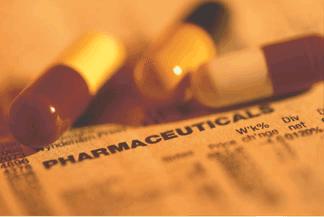|
The Internet has changed the way we live, work and shop. The growth of the Internet has made it possible to compare prices and buy products without ever leaving home. But when it comes to buying medicine online, it is important to be very careful. Some websites sell medicine that may not be safe to use and could put your health at risk. Millions of consumers are using the Internet to get health information. And thousands of web sites are offering health information. Some of those sites are reliable and up-to-date; some are not. How can you tell the good from the bad? The medicines that sold online can be fake (counterfeit or 'copycat' medicines); can be too strong or too weak, or have dangerous ingredients, or have expired (are out-of-date), or haven't been approved or checked for safety and effectiveness, can be made using non-safe standards, or not safe to use with other medicine or products you use. You have to talk with your doctor and have a physical exam before you get any new medicine for the first time. Use only medicine that has been prescribed by your doctor or another trusted professional.
The benefits of medicines are the helpful effects you get when you use them, such as lowering blood pressure, curing infection or relieving pain. The risks of medicines are the chances that something unwanted or unexpected could happen to you when you use them. Risks could be less serious things, such as an upset stomach, or more serious things, such as liver damage. Before using any medicine--as with many things that you do every day--you should think through the benefits and the risks in order to make the best choice for you. For example, every time you get into a car, there are risks---the possibility that unwanted or unexpected things could happen. You could have an accident, causing costly damage to your car, or injury to yourself or a loved one. But there are also benefits to riding in a car: you can travel farther and faster than walking, bring home more groceries from the store, and travel in cold or wet weather in greater comfort. The same is true before using any medicine. Every choice to take a medicine involves thinking through the helpful effects as well as the possible unwanted effects. In many situations, the expert advice of your doctor, pharmacist, or other health care professionals can help you make the decision. To lower the risks and obtain the full benefits of medicines you need a)talk with your doctor, pharmacist, or other health care professionals; b)know your medicines--prescription and over-the-counter; c)read the label and follow directions; d)avoid interactions; e)monitor your medicines' effects--and the effects of other products that you use You need keep an up-to-date, written list of ALL of the medicines (prescription and over-the-counter) and dietary supplements, including vitamins and herbals, that you use--even those you only use occasionally. Before use a medicine make sure you understand the directions; ask your doctor if you have questions or concerns. Always double check that you have the right medicine. You have to know what to do if you experience side effects and when to notify your doctor, and know when you should notice an improvement and when to report back.
Drug interactions may make your drug less effective, cause unexpected side effects, or increase the action of a particular drug. Some drug interactions can even be harmful to you. Early in a drug's development, companies conduct research to detect or predict potential interactions between drugs. Experts evaluate the drug-interaction studies as part of assessing a drug's safety. Mixing two drugs together could make one of the drugs ineffective. The combination also could increase a drug's effect, and be harmful. The result might be mild symptoms such as nausea, stomach upset, or headache, or more serious symptoms such as a dramatic drop in blood pressure, irregular heart beat, or damage to the liver-the primary way that drugs pass through the human body. It used to be that the only way to test for drug interactions was in people. Now drug companies can take five test tubes with the five major pathways for metabolism and put their drugs in to see whether it's metabolized by CYP450. This allows to generate a list of possible interactions based on their findings. This phase of research in test tubes, known as in vitro studies, allows researchers to perform drug-interaction studies in labs by testing a drug with other drugs that have the same route. This has made the research faster and more accurate. If two drugs go through the same enzyme, the presence of one drug can prevent the metabolism of the other. So this allows you to look at the worst-case scenarios and ask: 'What if we put this drug with that one, knowing that they have the same route?'" Researchers say there are several important variables that affect individual differences in how drugs are metabolized, including race, gender, age, and health conditions. For example, people with kidney or liver disease don't eliminate drugs from their system as well as people who are healthy. Very young children and older people have slower drug metabolism than others, and women may metabolize drugs differently than men in some cases. The large number of drugs on the market, combined with the common use of multiple medications, makes the risk for drug interactions significant. Consumers need to tell doctors what they're taking and ask questions, and health professionals could do a better job at trying to get the information they want. Drug interactions with food and beverages, for example, taking quinolone antibiotics such as ciprofloxacin with food and drinks such as colas, coffee, and chocolate that contain caffeine may cause excitability and nervousness. There can be a potentially fatal increase in blood pressure if food containing tyramine is eaten when taking monoamine oxidase inhibitors, drugs that treat mood disorders.

|